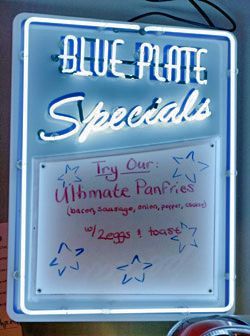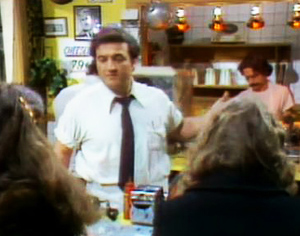A story about understanding the worth of your work
 The young woman walked toward my trade show booth as though a sharp stick was forcing her there.
The young woman walked toward my trade show booth as though a sharp stick was forcing her there.
I said hello and watched her as she said, “Hi. Um, what do you do?”
I told her about my work as management consultant and educator. I kept my description brief, as it seemed anything too specific might cause her to startle and run. She kept looking over her shoulder as she tried to listen to me.
“Are you waiting for someone?” I asked as I looked toward the exit.
She blanched, realizing she’d been caught in her distraction and said, “Oh, sorry. Yes. My mother. She’s making me talk to everyone here and ask about what they do and whether they want to hire me.” It was a clear directive, but one that obviously scared the heck out of her.
“Ok,” I responded. “Let’s start by taking you out of your mom’s line of sight so we can actually talk.” I eased my way toward the back of the open booth, which was set-up for easy conversation and, as I was discovering, shielding people from their hovering parents. Her whole body relaxed as she realized that she was out of the crosshairs.
The young woman was a 22-year-old, new college graduate with a degree in English literature. She wanted to do “something with writing.” She admitted this accomplishment and interest in a vague and slightly nervous manner, but I told her it was good. A liberal arts degree generally means that a person can form complete and coherent sentences and has some experience in actually thinking about how to address problems. Then I asked her to tell me about her work experience.
“I don’t have any work experience.”
I know that there are those occasional creatures who make it into their 20s without ever having done so much as babysit the neighbor’s children or do a two-week internship at a relative’s law firm, but she didn’t seem to fit that bill.
“Really? You’ve never done any kind of work, ever?” I asked.
“Well, sure, but not any kind of work that counts for anything. Just work in restaurants.”

I inhaled slowly, smiled at her kindly and looked into her overwhelmed eyes before I launched into my potentially vehement response.
“Can you commit to something right now that will help your career from this point forward?” She nervously nodded her head in agreement. “Never dismiss the work you have done in the food service industry again. Ok?”
She nodded again and asked, “But why? It doesn’t have anything to do with writing. It was just a job.”
It was a fair question and I said, “As a person who has hired or helped hire hundreds of people, and as a person who has considerable experience in the hospitality industry in more jobs than I can care to count, I can tell you that all experience is valuable – especially in food service. What jobs did you do?”
“I was a hostess and a busser at a busy restaurant all through college,” she said.
“Excellent! That tells me you have three important skills employers want and that you need to realize you have!
- You know about customer service and how to keep people happy – this is valuable in all businesses because everyone has a customer someplace
- You can multi-task in a way that works with all the moving pieces of a busy restaurant, so you can probably think on your feet in many situations
- You understand the importance of being prepared for the day – side work and closing duties help your shift run smoothly today and the business run well tomorrow.”
She looked with a slightly stunned expression but finally responded, “Wow. I didn’t ever think about it that way; but you’re right, I do know how to do all of those things.”
“Yes. And it’s important that you see any work you’ve done as being of value in some capacity. That doesn’t mean that you spin it to be more important than it was – being a hostess is not being a manager. Think about what you’ve done and how you had to learn to be able to work with others. Restaurants are great because you get immediate feedback on your performance from coworkers and customers. They are wonderful places to learn about what you do well and what you do poorly. Take that experience and be proud of it – even if you never work in another restaurant again.”

We talked about how she could think about those skills as she looked for employment and the types of work she might pursue. She understood that she actually had 4 years of work experience she could feel confident about.
A reassured smile had replaced her initial look of distress as she thanked me and turned to tackle the rest of the trade show. She looked through the door for the watchful glare that had prodded her into my booth. She had a twinkle in her eye that showed a kernel of pride. The young woman now knew something her well-meaning parent didn’t: her work in restaurants had helped her become more prepared to find a new job than her degree alone could do.
I smiled at her and said, “Tell your mother you’re going to be just fine.”




